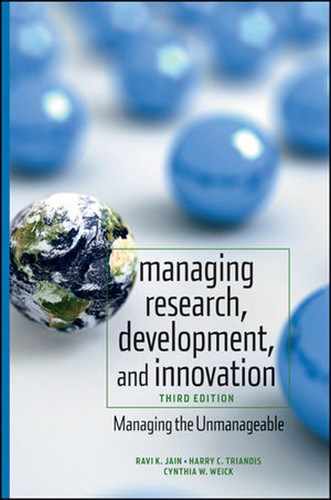17.8. SUMMARY
In summary, science and technology are closely interrelated. Investment in R&D is essential for economic development and for sustaining economic growth. The level of support should be determined by the social benefits of competing usages of the funds. The few clues that we have at present suggest that in the United States the benefits from increased support for R&D will be greater than the benefits that society will derive from competing usages of the funds.
Views on R&D expenditure and science policy, the topic discussed at the end of this chapter, naturally vary. Public policy decisions related to science policy and research expenditure affect resources available for conducting research and the emphasis on such research. Consequently, participation of engineers and scientists in the policy-making stage, where tradeoffs between competing demands are considered, needs to be reemphasized and institutionalized.
Scientists and engineers engaged in conducting and managing R&D constitute a substantial portion of the American electorate. Over 1.4 million people, in a country where half the population usually does not vote, can be a critical force in some elections. The data presented here suggest that the United States lead in science is slipping. Furthermore, too much is spent on research that has little potential for technological innovation spin-offs, while other countries, such as Japan, are graduating more engineers as a percent of total graduates than the United States, produce more patents per capita, and do more research in areas that have such spin-offs. Should these trends be reversed? In a democracy, such changes come from concerned segments of the broader electorate, including scientist and engineers knowledgeable about such matters.
